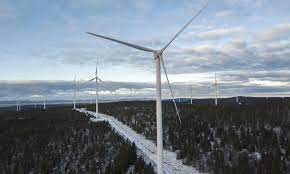The European Commission adopted last week a plan on how to tackle the rise in global energy prices in the short-term while relying on the transition to renewable energy sources in the long-term.
The exceptional rise in global energy prices is projected to last through the winter and affects all EU Member States and, in particular, the United Kingdom. The Communication on Energy Prices includes a “toolbox” that the EU can use to address the immediate impact of the current price increases and further strengthen resilience against future shocks.
Short-term national measures include emergency income support to households, state aid for companies, and targeted tax reductions. The Commission will also support investments in renewable energy and energy efficiency, examine possible measures on energy storage and purchasing of gas reserves, and assess the current electricity market design.
The price spike is driven by increased global demand for energy and gas in particular; the Commission links this increased demand to the reopening of economies after months of public health restrictions.
In addition, lower-than-expected gas volumes have been delivered by Russia, tightening the market as the heating season approaches. Though it has fulfilled its long-term contracts with its European counterparts, Gazprom has offered little or no extra capacity to ease pressure on the EU gas market.
“Rising global energy prices are a serious concern for the EU,” said Energy Commissioner Kadri Simson when she presented the remedial measures at a press briefing. “As we emerge from the pandemic and begin our economic recovery, it is important to protect vulnerable consumers and support European companies.”
She added that the Commission has also identified medium-term measures to ensure that the energy system is more resilient to future volatility throughout the transition.
Overall, she seemed satisfied with the internal energy market. “The current situation is exceptional and the internal energy market has served us well for the past 20 years. But we need to be sure that it continues to do so in the future, delivering on the European Green Deal, boosting our energy independence and meeting our climate goals.“
According to the Commission, priority should be given to targeted measures that can rapidly mitigate the impact of price rises for vulnerable consumers and small businesses. These measures should be easily adjustable in the spring, when the situation is expected to stabilise.
Among the immediate measures that the Commission proposes to Member States are emergency income support for consumers, for example through vouchers or partial bill payments, temporary deferrals of bill payments, safeguards to avoid disconnections from the grid, and temporary, targeted reductions in taxation rates for vulnerable households.
However, the clean energy transition is the best insurance against price shocks in the future, and needs to be accelerated.
The Commissioner admitted that there will be a need for natural gas during the transition or phase-out period but could not specify for how long. It may take up to 30 years until the deadline for net-zero emissions and climate neutrality in 2050.
The role of natural gas
Natural gas still plays an important role in the EU energy mix and currently represents around a quarter of the EU's overall energy consumption.
According to Eurostat, almost three-quarters of the EU's natural gas imports come from Russia (41 %), Norway (16 %), Algeria (8 %) and Qatar (5 %), while over three-quarters of solid fuel (mostly coal) imports originates from Russia (47 %), the United States (18 %) and Australia (14 %). Most of Russia’s oil and gas reserves are located in the Arctic region.
The import of fossil fuels from the Arctic is a sensitive issue, especially in view of the recent Communication on EU’s updated policy for the Arctic region, which calls for a moratorium on the exploration of fossil fuels in the region and that coal and natural gas there should stay in the ground. The EU imports 87% of the liquefied natural gas produced in the Russian Arctic.
Russian energy company Gazprom has been accused of manipulating prices and an increase in supply from other sources would reduce dependence on one major supplier.
EU diversification
Despite its commitment to climate neutrality by 2050, the EU will continue to depend on natural gas for some years to come. In light of this, alternative sources – for instance from new natural gas fields in the Mediterranean Sea – are being considered to reduce dependence on Russia.
“Our priority is to reduce our dependence on fossil fuels by keeping investing in renewable energy sources and energy efficiency,” a Commission spokesperson replied at today’s press conference (18 October). “That will bring down our dependence on among others natural gas.”
He added that Russia is one of EU’s major suppliers but not the only one. “The information we have is that Gazprom is fulfilling its contracts with Europe.”
“We are committed to reaching out to international suppliers to discuss the supply of natural gas but our long-term goal remains to reduce our dependence on fossil fuels because they are mostly imported, their prices are volatile and they emit green-house gases which are damaging the climate.”
M. Apelblat
The Brussels Times

